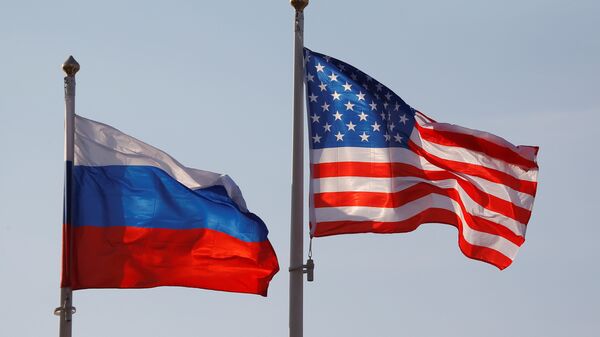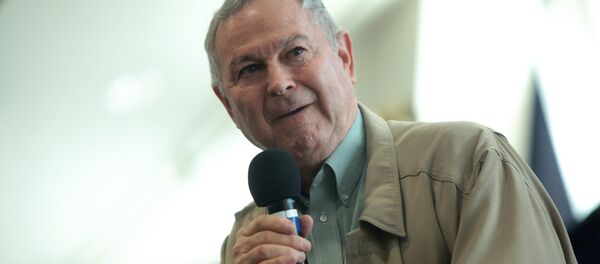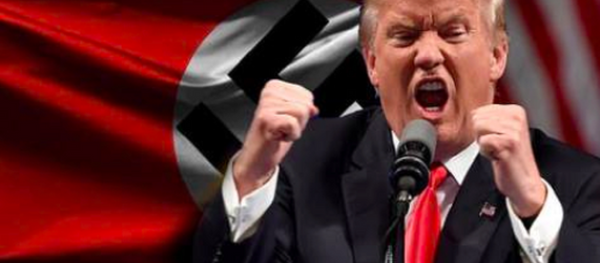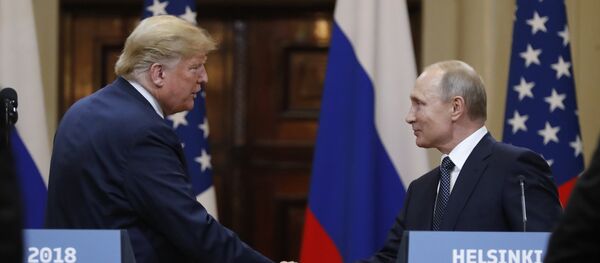A study of political advertisements over a four-week period between mid-September and mid-October declares 2018 races the "Health Care Election." That's because 45.9 percent of all advertisements for federal races mentioned the subject, as did 30.2 percent of gubernatorial ads.
By contrast, the question as to whether members of Donald Trump's presidential campaign colluded with Russia to win the 2016 presidential election, dubbed "Russiagate," was referenced in 0.1 percent of the ads. Zero advertisements for or against Senate candidates mentioned Russia or special counsel Robert Mueller's probe into alleged collusion or Russian meddling.
As it turns out, Russia isn't as much of an issue to the average American as things like the economy, taxes, health care or the opioid epidemic.
The candidates' messaging may be seen as a response to the interests of their constituents. One poll from July asked Americans to rank the most important problems America faces; among nearly 50 options, the number of Americans who said the "situation with Russia" is the biggest issue failed to add up to a percentage point. In August, another poll showed that two-thirds of Americans wanted Mueller to wrap up his investigation before the midterm elections.
That's not to say that the majority of Americans don't believe Russia interfered with the 2016 elections in one way or another: 75 percent say they did, according to an August poll. Another poll, released just a day later, reveals that 71 percent of Russians believe their government did not try to interfere, while 14 percent said they didn't know.
With less than a week left, it appears that Mueller will not release his findings prior to the midterms; prosecutors generally shy away from announcements during election season. However, Mueller is expected to release key findings about his investigation, including the question of collusion and whether Trump obstructed justice, shortly after the midterm elections, Sputnik News reported.
According to an October report from Politico, the Mueller investigation will prove a "disappointment" for those banking on it to topple Trump's presidency. For that report, Politico spoke to "defense lawyers working on the Russia probe and more than 15 former government officials with investigation experience spanning Watergate to the 2016 election case."
While the overwhelming majority of Democratic advertisements for the midterm elections simply don't address Russia, some particularly absurd — and expensive — ones in California have, Sputnik News reported. And though most Americans appear to overwhelmingly consider Russia a non-issue, that doesn't mean that the mainstream media, celebrities, or top Democrats aren't treating it as an existential threat to American democracy.
Since the Russia investigation kicked off in late July of 2016, prior to it being taken over by the special counsel, conspiracy theories about the country have proliferated in liberal circles on social media and in the mainstream liberal media, including that Russia resurrected and expanded the Soviet Union; that the Soviet Union had battle moose; that Trump had been a Russian asset since the mid-80s; that Russia hacked French President Emmanuel Macron; that the Russians stoked pro-independence fervor in Catalonia; that they were behind the UK's Brexit vote; that Russia stoked tensions prior to the dead rally in Charlottesville, Virginia, in August 2017; that Russia was responsible for school shootings in the US; that Russia was behind the election of Mexican President Andres Obrador, and many more — too many to recount.
There is also the strange saga of the Department of Homeland Security's claim that Russians penetrated state voting systems in 21 states prior to the 2016 election — an assertion that collapsed immediately upon scrutiny.
Many celebrities, from Morgan Freeman to Alyssa Milano, have hyped the Russia threat, while electronic musician Moby has claimed that the CIA contacted him asking him to talk about Trump-Russia collusion on social media. According to the artist, the CIA agents told him that the Fusion GPS dossier, which was funded by the Democrats and claims that Trump hired Russian prostitutes to urinate on a bed previously used by former President Barack Obama in Moscow, is "one hundred percent real."
Last week, MSNBC political director Chuck Todd even suggested that Russia may have been behind the pipe bombs sent to prominent Democrats in October. The following day, Trump supporter Cesar Sayoc was arrested on suspicion of having sent the bombs.
Meanwhile, as Trump continues to be derided in the press for his perceived connections to Russia, his policies against the country have proven incredibly hawkish. As Secretary of State Mike Pompeo pointed out while he was being grilled by Congress over Trump's meeting with Russian President Vladimir Putin in Helsinki, Finland, under Trump, the US had issued 213 sanctions against Russia, expelled 60 Russian diplomats, closed Russia's Seattle and San Francisco consulates, held 150 military drills in the European Union, gave $11 billion to a European defense initiative and gave $200 million in aid to Ukraine, in addition to lethal weapons. Since then, more sanctions have been issued, and more drills have been held. Perhaps even more confrontationally, the US announced its decision to pull out of the Cold War era Intermediate-Range Nuclear Forces (INF) Treaty.
Amid the perceived threat from Russia, a number of former members of the US intelligence community have emerged in the limelight as patriotic crusaders including former Director of the Central Intelligence Agency John Brennan, former United States Director of National Intelligence James Clapper, former FBI Director James Comey, former FBI agent Peter Strzok, former FBI Deputy Director Andrew McCabe, former British intelligence officer Christopher Steele and more. A record number of former intelligence community members are running in the midterms as Democrats while neoconservatives like Bill Kristol, who lead the charge into the Iraq War, which most Americans now assess as a terribly costly mistake, have successfully rehabilitated their image as conservatives who are tough on Russia and Trump.
As journalist Aaron Maté points out in The Nation, Director of National Intelligence Dan Coats has been warning of Russian interference in the midterms for months over threats from a "a pervasive messaging campaign by Russia to try to weaken and divide the United States."
Coats likened in July that "the persistent danger of Russian cyberattacks today…to the warnings the United States had of stepped-up terror threats ahead of the Sept. 11, 2001, attacks."
"The warning lights are blinking red again," he added.
More recently, the ODNI, in conjunction with the Department of Homeland Security, the Department of Justice and the FBI, stated that "we do not have any evidence of a compromise or disruption of infrastructure that would enable adversaries to prevent voting, change vote counts or disrupt our ability to tally votes in the midterm elections."
Instead, the report cited threats to Americans' minds posed by the likes of RT and Sputnik News.
While the threat to the midterms from news agencies remains active, according to the government, the tactic of sock puppet trolls appears to be absent from the alleged ongoing meddling campaign. Facebook, despite its many bans in partnership with the NATO-funded Atlantic Council or the CIA-funded FireEye, have not alleged that any Russian accounts were said to be trying to interfere in the election. Nonetheless, a number of media outlets have decided otherwise without offering up any evidence. FiveThirtyEight even dubbed this year's race the "Moscow Midterms," journalist Maté pointed out.
One woman indicted for allegedly trying to interfere in the midterm elections is an employee of the Internet Research Agency, an LLC said to work as a troll farm for the Kremlin. Her crimes? "Meticulous record-keeping and management," according to an unsealed indictment cited by Maté.
As revulsion and disgust directed at Russia has grown in the past years, the Russiagate narrative has failed to materialize, if not slowly begun to unravel. In many ways, it was doomed from the start. Americans have been lead to believe that a dozen or so Russians successfully swayed the vote against former Secretary of State Hillary Clinton with asinine memes.
The posts made by the alleged Russian trolls between 2015 and 2017, roughly spanning the US presidential election season, represented just 0.004 percent of News Feed content on Facebook, according to the company, and most of that content was posted after the election. A new piece by the Atlantic Council throws the significance of the trolls into even more doubt with the claim that they primarily targeted Russian speakers and posted "significantly more" in Russian than in English.





